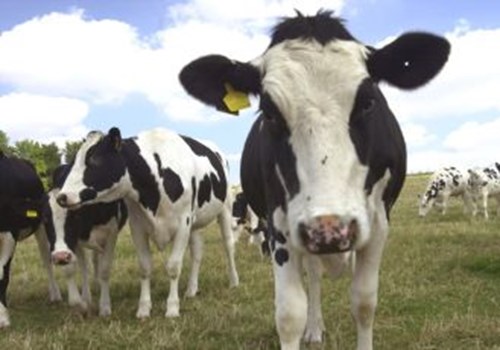NCTC zoonotic pathogens: Shiga-toxic Escherichia coli reference strains

Escherichia coli is a common commensal organism found in the intestine of warm-blooded organisms. Some variants of Escherichia coli can cause severe disease, some of which are divided into pathotypes based on their gene content, interaction with host cells and associated pathologies. One such pathotype is shiga toxin‐producing Escherichia coli (STEC, sometimes known as EHEC: Enterohemorrhagic Escherichia coli or VTEC: verotoxigenic Escherichia coli) is an E. coli pathotype that can cause severe gastrointestinal disease, haemorrhagic colitis and haemolytic–uremic syndrome in humans. The STEC pathotype’s major virulence factor is the presence of one or both of stx1 or stx2 the genes that encode shiga-toxin. Ruminants such as cows are known to be a reservoir for STEC and have the potential to contaminate human foodstuffs and animal food sources. As such, robust testing methodologies for the detection of STEC strains in products intended for human consumption, animal consumption, and environmental samples from food production and handling areas.
Gold standard identification of STEC strains includes detection of shiga-toxin genes. ISO/TS 13136:20121 provides a technical specification for the detection of STEC by real-time PCR at the determination of O157, O145, O111, O103 and O26 serotypes; these are the serotype most commonly associated with STEC disease, however any serotype of Escherichia coli can be a shiga-toxin producer. The standard advocates for the use of appropriate positive and negative control strains to ensure the validity of results, and there are several bacterial strains, biological materials and data available from the NCTC that are suitable for use and validation as control strains/materials.
NCTC 12079 Escherichia coli is positive for both the stx1 and stx2 genes and would be suitable for use as a positive control in an assay for these genes. NCTC 10538 Escherichia coli K12 is negative for both shiga toxin genes (and other key genes associated with other E. coli pathotypes) and is suitable for use as a negative control. Both NCTC 12079 and NCTC 10538 are available as live organism preserved by freeze-drying, or as DNA extracts. DNA extracts of known shiga-toxin positive strains are subject to less stringent safety regulations and eliminate the need to grow ACDP 3 bacteria in culture.
Control material to facilitate detection of O-antigen loci by PCR are also available from the NCTC as bespoke DNA extract products, alongside publicly available whole genome sequence data to aid primer design:
|
NCTC No. |
Organism |
stx1 |
stx2 |
eae |
Serogroup (gene) |
GenBank Accn. |
|---|---|---|---|---|---|---|
|
Escherichia coli |
-ve |
-ve |
-ve |
N/a |
||
|
Escherichia coli |
+ve |
+ve |
-ve |
O157 (-) |
- |
|
|
Escherichia coli |
-ve |
-ve |
+ve |
O26 (wzx; NZ_UGAL01000001.1: 1953672..1954934) |
||
|
Escherichia coli |
-ve |
-ve |
-ve |
O103 (wzx; NZ_UGEO01000001.1: 1814277..1815542) |
||
|
Escherichia coli |
-ve |
-ve |
+ve |
O111 (wbdI ; UASF01000009.1: 410093..410542) |
||
|
Escherichia coli |
-ve |
-ve |
+ve |
O145 (ihp1 ; UASG01000041.1: 32587..33852) |
||
|
Escherichia coli |
-ve |
-ve |
+ve |
O157 (rfbE ; UFZH01000004.1: 120640..121734) |
Some strains are also positive for the intimin encoding eae gene which is associated with other Escherichia coli pathotypes.
Additionally, bespoke services for nucleic acid extraction are available for the majority of strains held by the NCTC. For further information, please contact us.
References
-
ISO/TS 13136:2012 Microbiology of food and animal feed — Real-time polymerase chain reaction (PCR)-based method for the detection of food-borne pathogens — Horizontal method for the detection of Shiga toxin-producing Escherichia coli (STEC) and the determination of O157, O111, O26, O103 and O145 serogroups. 07.100.30 Food microbiology.
Written by Jake D. Turnbull
Follow Jake on twitter @HotchPotchJake.
October 2020
